Scholars from all five Brookings research areas — metropolitan policy, economic studies, governance studies, foreign policy, and global economy and development — will collectively spend 10 weeks in residence at UNLV each academic year.
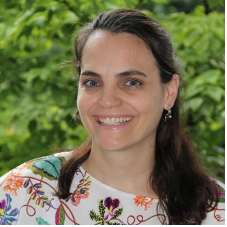
Emily Markovich Morris is a Brookings Fellow in the Center for Universal Education and educator of comparative education and international development whose research explores how to build collaborations between learning institutions, families, and communities to support marginalized youth in reaching their educational, work, and life aspirations. As a fellow in the Center for Universal Education at Brookings, Morris coordinates family engagement in education efforts and leads research on leveraging family-school-community partnerships to transform educational systems. For the past two decades, Morris has worked with nongovernmental and community-based organizations, government agencies, as well as international education institutions in sub-Saharan Africa, Latin America, and Southeast Asia on promoting educational access, equity, and inclusion. She has served as a senior leader and international advisor on distance learning, community and family engagement, gender and inclusion, policy implementation, teacher training and curriculum design, and livelihoods development.
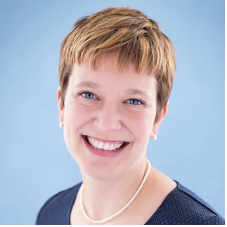
Samantha Gross is the director of the Energy Security and Climate Initiative at Brookings and a fellow in Foreign Policy. Her work focuses on the intersection of energy, environment, and policy, including climate policy and international cooperation, the transition to net-zero emissions energy system, energy geopolitics, and global energy markets. Gross has more than 25 years of experience in energy and environmental affairs. She was director of the Office of International Climate and Clean Energy at the U.S. Department of Energy. In that role she directed U.S. activities under the Clean Energy Ministerial, including the secretariat and initiatives focusing on clean energy implementation and access and energy efficiency. Gross appears frequently in the media in the United States and abroad on topics of energy markets, energy security, and the green energy transition.
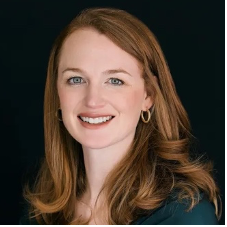
Molly Kinder is a Fellow at Brookings Metro, examining the present and future of work, especially for low-wage workers, women, and workers of color. Kinder’s current research brings the voices and perspectives of workers at the frontline of COVID-19 to inform policy recommendations to better compensate, protect, and support essential workers. Kinder’s research on essential workers has been cited in the New York Times, Washington Post, TIME Magazine, NBC, ABC, CBS, CNN, Yahoo Finance, CNBC, NPR, and the BBC.Previously, Kinder was a nonresident Senior Fellow at New America and Director of Research for its Work, Workers & Technology initiative. She is the lead author of the report, “Worker Voices: Technology and the Future for Workers” with Amanda Lenhart, exploring the perspectives of 40 workers across the country whose jobs are at high risk of automation.
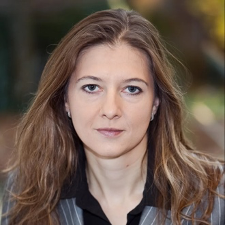
Vanda Felbab-Brown is a senior fellow in the Strobe Talbott Center for Security, Strategy, and Technology in the Foreign Policy program at Brookings. She is the director of the Initiative on Nonstate Armed Actors. She is also the co-director of the Africa Security Initiative and the Brookings series on opioids: “The Opioid Crisis in America: Domestic and International Dimensions.” Previously, she was co-director of the Brookings project, “Improving Global Drug Policy: Comparative Perspectives Beyond UNGASS 2016,” as well as of another Brookings project, “Reconstituting Local Orders.” Felbab-Brown is an expert on international and internal conflicts and nontraditional security threats, including insurgency, organized crime, urban violence, and illicit economies. Her fieldwork and research have covered, among others, Afghanistan, South Asia, Burma, Indonesia, the Andean region, Mexico, Morocco, Somalia, Kenya, Ethiopia, Djibouti, Tanzania, Namibia, Niger, and Nigeria. She was a senior advisor to the congressionally-mandated Afghanistan Peace Process Study Group.
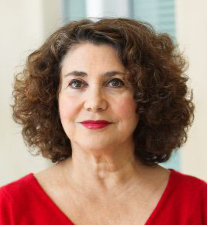
Elaine C. Kamarck is a Senior Fellow in the Governance Studies program as well as the Director of the Center for Effective Public Management at the Brookings Institution. She is an expert on American electoral politics and government innovation and reform in the United States, OECD nations, and developing countries. She focuses her research on the presidential nomination system and American politics and has worked in many American presidential campaigns. Kamarck is the author of “Primary Politics: Everything You Need to Know about How America Nominates Its Presidential Candidates” and “Why Presidents Fail And How They Can Succeed Again.” She is also the author of “How Change Happens—or Doesn’t: The Politics of US Public Policy” and “The End of Government-As We Know It: Making Public Policy Work.” Kamarck is also a Lecturer in Public Policy at the Harvard Kennedy School of Government. She started at the Kennedy School in 1997 after a career in politics and government. She has been a member of the Democratic National Committee and the DNC’s Rules Committee since 1997. She has participated actively in four presidential campaigns and in ten nominating conventions—including two Republican conventions—and has served as a superdelegate to five Democratic conventions. In the 1980s, she was one of the founders of the New Democrat movement that helped elect Bill Clinton president. She served in the White House from 1993 to 1997, where she created and managed the Clinton Administration’s National Performance Review, also known as the “reinventing government initiative.” At the Kennedy School, she served as Director of Visions of Governance for the Twenty-First Century and as Faculty Advisor to the Innovations in American Government Awards Program. In 2000, she took a leave of absence to work as Senior Policy Advisor to the Gore campaign. Kamarck conducts research on 21st century government, the role of the Internet in political campaigns, homeland defense, intelligence reorganization, and governmental reform and innovation. Kamarck makes regular appearances in the media, including segments on: ABC, CBS, NBC, the BBC, CNN, Fox News Now New England Cable News, and National Public Radio. Kamarck received her Ph.D. in political science from the University of California, Berkeley.
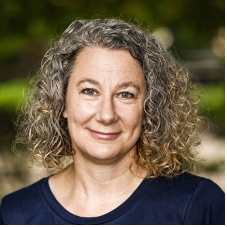
Martha Ross is a Senior Fellow at Brookings Metro. Ross researches and writes about workers and the labor market, with a focus on creating a healthy economy that offers opportunity for all. Ross’s recent work highlights low-wage workers, out-of-work young people and adults, the education and employment experiences of 18- to 24-year-olds, and pathways to good jobs for young people.
Since the COVID-19 pandemic began, Ross has written and spoken about the virus’ disproportionate impacts on low-wage workers and young adults, its effects on housing instability, and strategies to promote an equitable recovery.
Prior to joining Brookings, Ross was a presidential management fellow in the Office of the Assistant Secretary for Planning and Evaluation in the U.S. Department of Health & Human Services, where she focused on welfare policy. Ross has a master’s degree from the University of Chicago’s School of Social Service Administration and a bachelor’s degree from Colorado College. In 2007, Ross was detailed to the Council of the District of Columbia, focusing on local workforce development policy.
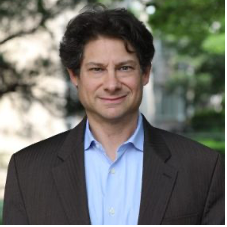
Aaron Klein is Miriam K. Carliner Chair and senior fellow in Economic Studies at the Brookings Institution, focused on financial technology and regulation; payments; macroeconomics; and infrastructure finance and policy. Prior to joining Brookings in 2016, he directed the Bipartisan Policy Center’s Financial Regulatory Reform Initiative. Between 2009 and 2012, Klein served as the deputy assistant secretary for economic policy at the Department of Treasury. He worked on financial regulatory reform issues including crafting and helping secure passage of the Dodd-Frank Wall Street Reform and Consumer Protection Act of 2010. He also played leading roles on responding to the economic crisis, housing finance reform, transportation and infrastructure policy, and Native American policy. Previously, Klein served as chief economist of the Senate Banking, Housing and Urban Affairs Committee for Chairmen Chris Dodd and Paul Sarbanes. He worked on numerous pieces of major legislation, including the Emergency Economic Stabilization Act (aka TARP), Housing and Economic Recovery Act, and the SAFETEA Act of 2005—re-writing America’s surface transportation system. Klein serves on the Board of the PC Project, a charity dedicated to finding a cure for Pachyonychia Congenita, and the American Academy of Political and Social Science. He taught at the Wharton school of Business. Klein serves as an external economist for the National Homebuyers Fund, Astro America, provides occasional expert analysis for several groups including Gerson Lerhman Group, AlphaSights, Guidepoint, Raymond James, and the Native American Finance Officers Association, and is an expert witness. Klein is a graduate of Dartmouth College and the Princeton School of Public and International Affairs.
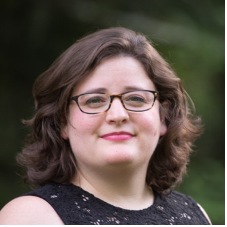
Lauren Bauer is a fellow in Economic Studies at the Brookings Institution and the associate director of The Hamilton Project. Her research focuses on social and safety net policies, particularly on federal nutrition assistance programs, education, the labor market, and the economic security of women and children. Bauer is a member of the New York City Office of Community Schools Research Advisory Council and the Government Affairs and Public Policy Committee of MAZON: A Jewish Response to Hunger. She has served in research positions with political campaigns and as a Special Assistant in the Office of the Secretary at the US Department of Education. Bauer holds a BA in History and an MA and PhD in Human Development and Social Policy with a certificate in Education Sciences, all from Northwestern University.
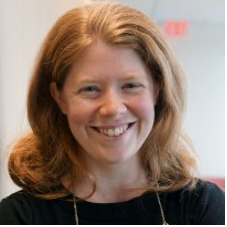
Katharine Meyer is a Fellow in the Governance Studies program for the Brown Center on Education Policy at the Brookings Institution. Meyer focuses on how individuals access knowledge needed to make informed decisions about their postsecondary education opportunities – and how to build successful, scalable strategies to ensure greater access to that information. Her current work explores how to support college retention and completion through virtual advising, the effect of school counselors on college access, and the design of state financial aid programs. Her work has previously been published in journals such as the Journal of Human Resources, Journal of Policy Analysis and Management, and Daedalus. Meyer holds a PhD in Educational Policy, a Masters of Public Policy, and a BA in Government from the University of Virginia.

Tony Pipa is a senior fellow in the Center for Sustainable Development at the Brookings Institution. Tony launched and leads the Reimagining Rural Policy initiative, which seeks to modernize and transform U.S. policy to better enable equitable and sustainable development across rural America. He also launched and leads the Local Leadership on the Sustainable Development Goals (SDGs) initiative, which explores the approach cities and local institutions are taking to solve local problems while driving progress on global policy and transnational issues.
Other research interests include city diplomacy and its influence on national foreign policy and multilateral institutions; the effectiveness of U.S. foreign assistance; and advancement of the SDGs in the U.S.
Tony has three decades of executive leadership experience in the philanthropic and public sectors addressing poverty and advancing inclusive economic development in the U.S. and globally. He served as chief strategy officer at the U.S. Agency for International Development and held multiple senior policy positions at the agency. He also led the U.S. delegation at the U.N. to negotiate and adopt the SDGs, serving as U.S. special coordinator for the Post-2015 Agenda at the U.S. Department of State.
His work on the international stage built upon a legacy of philanthropic leadership to advance community and economic development. While at the Triangle Community Foundation, he created one of the first programs nationwide focused on helping donor advisors maximize their philanthropic impact. He served as founding CEO of the Warner Foundation in Durham, North Carolina, focused on improving race relations and economic opportunity in the state, and subsequently helped launch the Foundation for Louisiana after Hurricane Katrina. He has played a principal role in the start-up of multiple philanthropic ventures focused on addressing poverty and improving distressed communities.
Tony serves as treasurer of StriveTogether, as a senior associate research fellow in the Global Cities program at the Italian Institute for International Political Studies, and as a member of several task forces and advisory committees. He grew up in rural Elysburg, Pennsylvania, in the heart of anthracite coal country and attended Stanford University, graduated from Duke University, and earned a Master of Public Administration at the Harvard Kennedy School.